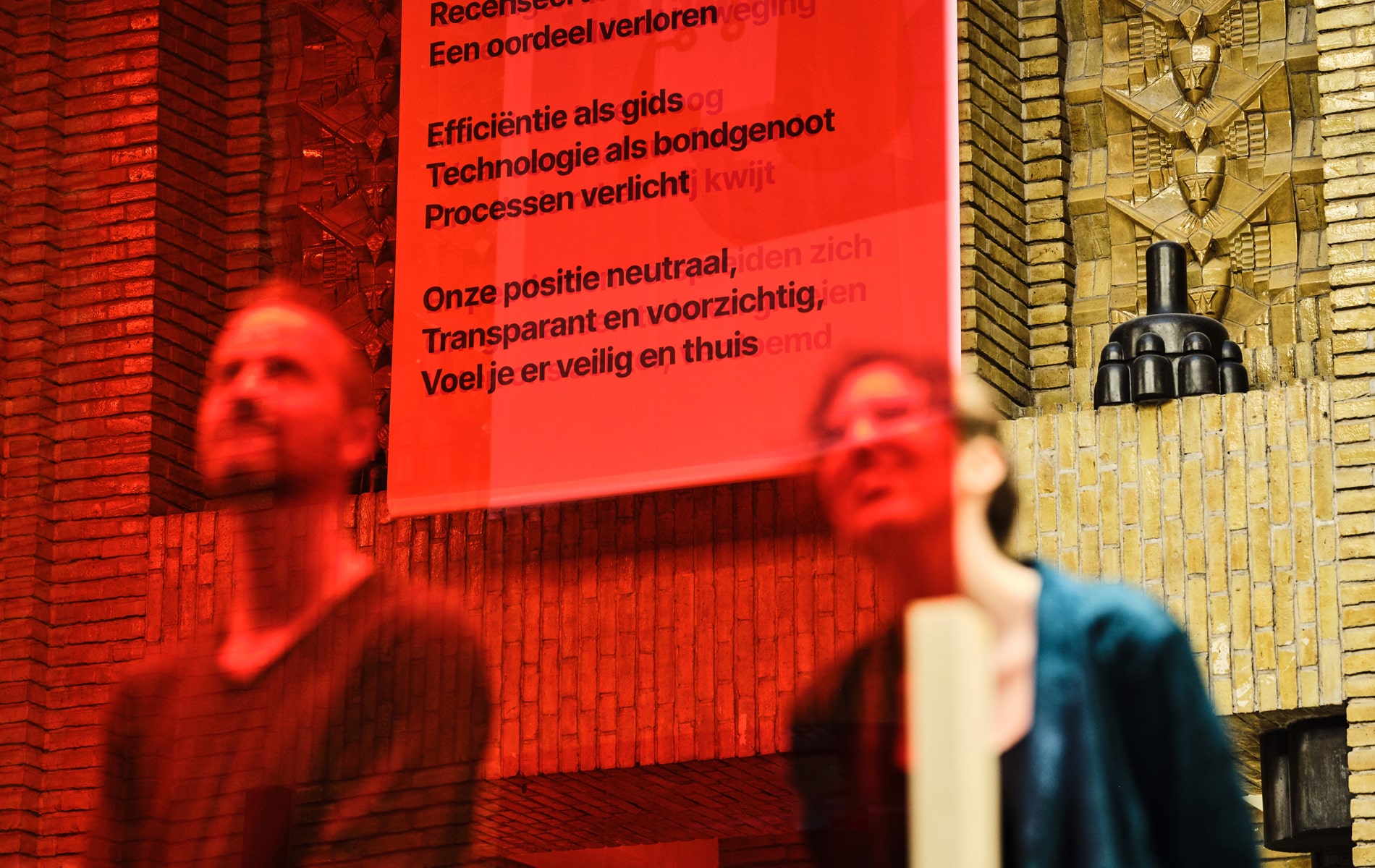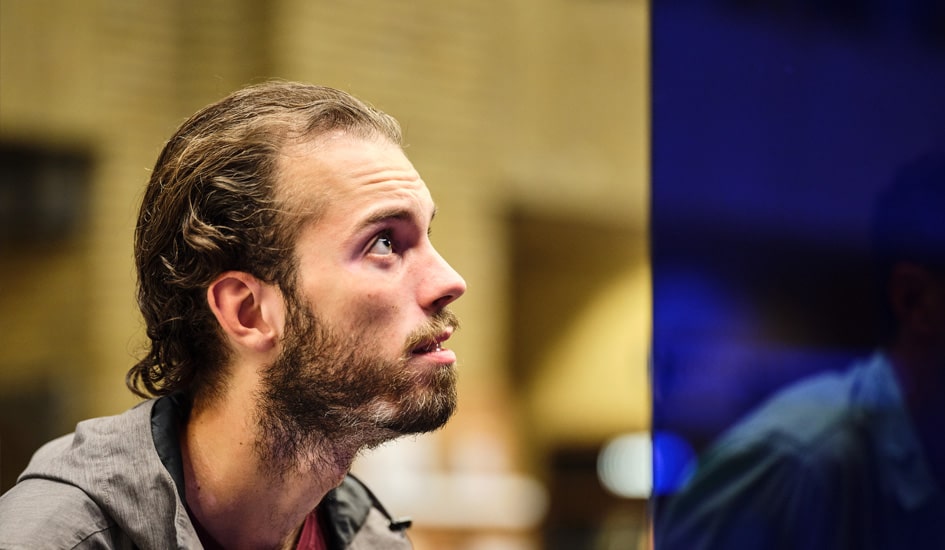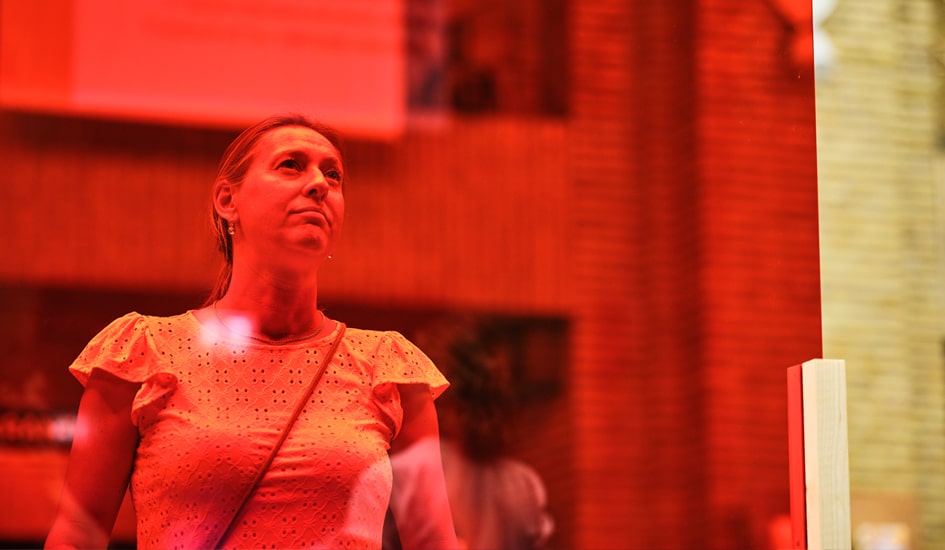
Contrary to what we sometimes think, technological development is not a neutral process: the commercial interests of big tech companies and the political agendas of governments play a guiding role. Pigment explores and acknowledges the importance of different perspectives on technology. The future belongs to all of us, and it’s up to us to give it color. What do technological developments mean for a non-commercial institution like the library? How does a child view today’s technological advancements, or an insect? And what is the perspective of artificial intelligence itself? This eye-catching installation invites you to step into four different realms of experience to reflect on technology through the eyes of those often overlooked.
Bibliotheek Utrecht
SIDN Fund
ON the LINE
Bibliotheek Utrecht




“Unlocking the true potential of technology requires democratizing its development, amplifying the voices often overlooked, including those of non-human entities. By embracing diversity and inclusion, we pave the way for a future that benefit all.”
“Unlocking the true potential of technology requires democratizing its development, amplifying the voices often overlooked, including those of non-human entities. By embracing diversity and inclusion, we pave the way for a future that benefit all.”


Digital citizenship is one of the greatest societal challenges of our time. Technology is an integral part of our world, and we can no longer take a pause from it. Therefore, it is crucial that citizens are made and kept digitally literate. In the Netherlands, public libraries play an important role in this regard: they are actively developing comprehensive programs on this topic. However, competent users often fall through the cracks in projects related to digital citizenship, as evidenced both in the literature and in conversations with Bibliotheek Utrecht (Library Utrecht). They know how to navigate well: understanding online banking, recognizing spam, making purchases online, and knowing what a VPN is. This can lead to a naive attitude towards technology, which is unjustified. Because how will it be in 10 years? Will they still be able to navigate complex algorithms and artificial friends as easily? And do they understand, apart from the use of technology, the invisible mechanisms and interests behind the technologies that shape our daily lives?
That is why we were commissioned by HKU (University of the Arts Utrecht) and Utrecht Library to create an artwork aimed at exploring and researching the theme of digital citizenship together with the public. We chose not to focus on technology usage because competent users are already proficient in it. Instead, we opted to concentrate on the broader questions surrounding technology development and its significance for the future. As a result, Pigment unveils the undemocratic mechanisms behind technology development, fosters a critical attitude towards technology, and underscores the necessity of collectively taking control of our technological future.
Photography: Thomas de Wit
Digital citizenship is one of the greatest societal challenges of our time. Technology is an integral part of our world, and we can no longer take a pause from it. Therefore, it is crucial that citizens are made and kept digitally literate. In the Netherlands, public libraries play an important role in this regard: they are actively developing comprehensive programs on this topic. However, competent users often fall through the cracks in projects related to digital citizenship, as evidenced both in the literature and in conversations with Bibliotheek Utrecht (Library Utrecht). They know how to navigate well: understanding online banking, recognizing spam, making purchases online, and knowing what a VPN is. This can lead to a naive attitude towards technology, which is unjustified. Because how will it be in 10 years? Will they still be able to navigate complex algorithms and artificial friends as easily? And do they understand, apart from the use of technology, the invisible mechanisms and interests behind the technologies that shape our daily lives?
That is why we were commissioned by HKU (University of the Arts Utrecht) and Utrecht Library to create an artwork aimed at exploring and researching the theme of digital citizenship together with the public. We chose not to focus on technology usage because competent users are already proficient in it. Instead, we opted to concentrate on the broader questions surrounding technology development and its significance for the future. As a result, Pigment unveils the undemocratic mechanisms behind technology development, fosters a critical attitude towards technology, and underscores the necessity of collectively taking control of our technological future.
Photography: Thomas de Wit


© 2024 Symbiose All Rights Reserved.
© 2024 Symbiose All Rights Reserved.